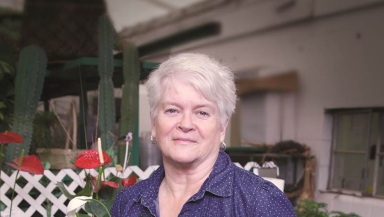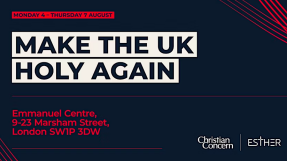
Barronelle Stutzman, the Washington florist who became a rallying point for US religious liberty campaigners when she refused to provide flowers for a same-sex wedding in 2012, has lost her appeal against conviction for discrimination.
Stutzman had previously served Robert Ingersoll and Curt Freed, but said she could not supply flowers for their wedding because same-sex marriage was against her Christian beliefs. She told reporters later, 'I just took [Ingersoll's] hands and said, "I'm sorry. I cannot do your wedding because of my relationship with Jesus Christ."'
Ingersoll posted on Facebook about the incident and though he had not filed a complaint the case was taken up by Attorney General Bob Ferguson. Stutzman, who attends a Southern Baptist church, was successfully sued on the grounds that she had broken state anti-discrimination and consumer protection laws.
Now Washington's nine high court justices have upheld that verdict, leaving her liable for the plaintiffs' attorney fees and damages. Howerver, she will appeal the decision to the US Supreme Court, her defence team from the Alliance Defending Freedom (ADF) said.
'It's wrong for the state to force any citizen to support a particular view about marriage or anything else against their will,' ADF senior counsel Kristen Waggoner said in a press release after the decision was announced. 'Freedom of speech and religion aren't subject to the whim of a majority; they are constitutional guarantees.'
The president of the Southern Baptist Convention's Ethics and Religious Liberty Commission, Russell Moore, said in response to the ruling that it 'shortchanges our nation's most fundamental freedom in favor of ideological conformity'.
He continued: 'Barronelle Stutzman followed her genuinely held beliefs without hostility toward any, and yet finds herself the target of a government that wants to steamroll her constitutional rights.
'The Court held that the government can force citizens to use their creative gifts and expressive speech to participate and endorse acts they believe to be immoral. This decision is a loss not only for Barronelle Stutzman but for every American who values liberty and civility over coercion by the government. My prayer is that this ruling would be overturned and that the US Supreme Court would recognise the crucial importance of religious liberty.'
Conservative Christians in the US have fought fierce battles against anti-discrimination legislation that has seen Christians prosecuted for failure to comply with laws protecting gay and transgender people. A draft of an executive order from Donald Trump, Establishing a Government-Wide Initiative to Respect Religious Freedom, was leaked last month. If enacted, the order would create wholesale exemptions for people and organisations who claim religious or moral objections to same-sex marriage, premarital sex, abortion, and transgender identity, and it seeks to curtail women's access to contraception and abortion through the Affordable Care Act. The draft inspired a petition in support from the American Family Association that has so far attracted more than 112,000 signatures.













